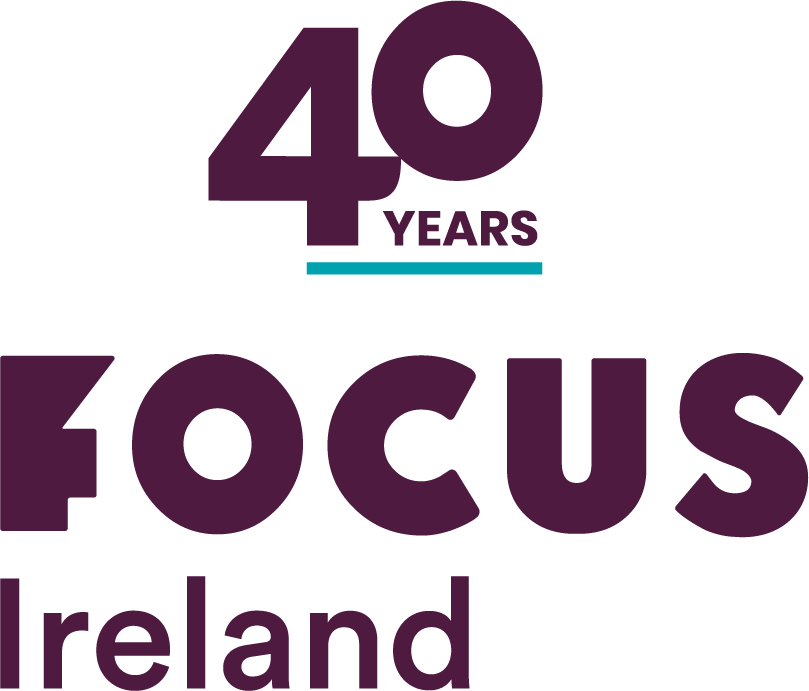Focus Ireland welcomes broad measures to protect people from rising inflation but deeply concerned by lack of action to help people on low & middle income living in the private rental sector.
Charity welcomes specific capital funding of commitments in ‘Housing For All.’
Focus Ireland also urges more rapid move to introduce new tax on hoarding of zones land
Focus Ireland today gave a broad welcome to the wide range of measures designed to protect people from the effects of rising inflation and fuel costs. However, the leading housing and homelessness charity expressed grave concern over the lack of attention to the problems faced by people living in the private rental sector.
“Since the end of the Covid-related measures to protect renters, we have seen a rapid increase in the number of households who cannot afford to pay their rising rents and are in danger of losing their homes. Many of these people are in receipt of the homeless HAP (Housing Assistance Payment) and have managed to move out of homelessness once but are now at serious risk of being forced back into it because their income is too low to afford their rent. We have shared our concerns with Government about this growing problem and we are at a loss to understand why nothing has been done in this budget to help these vulnerable families and individuals.
Director of Advocacy, Mike Allen said: ‘This budget will help many groups keep their heads above water, but one of the most striking omissions is the failure to increase the level of rent support for the 60,000 households currently on the Housing Assistance Payment (HAP) and a further 20,000 on Rent Supplement. The level of rent subsidy to these 80,000 households has not been increased since 2016 but during that time the Government has sanctioned rent increases of up to 4% a year – amounting to almost 20%. This is an increase of over €300/month according to the RTB standardised rent index.
The Government has now moved to link permitted rent increases to inflation, just at the time when inflation begins to rise. The budget estimate of 2.2% will mean that the average rent of €1,320 per month (according to the RTB) will increase by €7.25/week
This puts the €5 a week welfare payment and tax relief for low-income families in stark perspective and will inevitably lead to many households being pushed deeper into poverty, with some even losing their homes.
Focus Ireland welcomed the moves on Zone Land Tax but expressed frustration at the further 2-year delay in implementing it. “This is a long-overdue measure to ensure that there is a meaningful cost for those who leave zone building land lying empty. Sr Stan has described this as like hoarding food during a famine and we welcome the moves by Government to deal with it.
The vacant properties were described as the ‘low hanging fruit’ at the launch of Rebuilding Ireland in 2016. Successive Governments have failed to take the urgent action required to address this issue given the extraordinarily high number of vacant homes and sites nationwide. The fact that the new tax will come in at 3% rather than the 7% that the previous tax had now reached it a further disappointment, and we would urge the Government take a more urgent approach to this issue and to extend it to vacant homes.
Focus Ireland also welcomed the continued allocation of funding from the Department of Housing and Department of Health for providing homeless services. The ‘core’ funding from Section 10 funding rising from €166m pre-Covid This is a welcome recognition of the scale of the challenges the sector faces, and the increased costs of providing support services while we still struggle with the effects of the pandemic.
However, Focus Ireland noted that this overall coverage is mostly spent on emergency accommodation, with most of this being directed at private for-profit companies. The charity repeated its proposal that government should analyze spending into ‘passive’ expenditure and ‘active’ expenditure on services which specifically work to end homelessness, with an objective of shifting an increasing proportion to active measures in future years.
Focus Ireland also gave a guarded welcome to the measures to close the gap in the government’s childcare scheme which means that low-income families and those without work receive much lower supports than all other families. The decision to stop counting times spent in school against access to the childcare scheme represents an important step in the right direction for these most vulnerable families.

